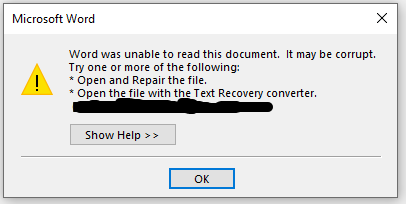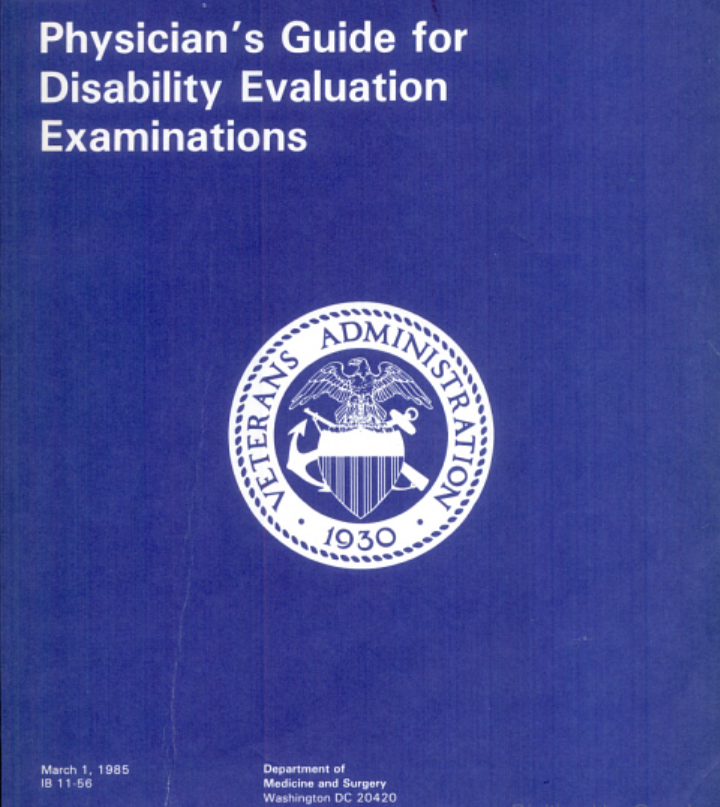Access over 300 pages of members-only helpful articles, documents, and guides (described below). No membership required.
Becoming a VIP Member is easy and free. As easy as 1, 2, 3: going directly to the VIP Downloads page. Membership is no longer required!
That's it!
After you confirm your subscription, you will receive a members-only password, and a link to a password-protected page where you can access several unique or hard-to-find documents—a total of 325 pages in PDF format if you decide to download all the handouts.
Click here to subscribe to the PTSD Exams Newsletter and become a VIP member right now.
Or click here to subscribe to Immediate Updates and become a VIP member right now.
Either way, after you confirm your subscription, you will receive access to over 300 pages of members-only content.
Membership no longer required. Now anyone can access the VIP Downloads. :0)
 Thoth - Egyptian god of reckoning, learning, writing, and science. Man with an ibis head. Vector image by Jeff Dahl. License: CC BY-SA 4.0
Thoth - Egyptian god of reckoning, learning, writing, and science. Man with an ibis head. Vector image by Jeff Dahl. License: CC BY-SA 4.0Psychologist and psychiatrist C&P examiners are the primary intended audience for PTSDexams.net.
However, many of the articles I publish provide helpful information for U.S. military veterans, veterans service officers, VA-accredited claims agents, and veterans law attorneys.
And I also try to write a few articles specifically for veterans, such as advice if you have an upcoming PTSD C&P exam.
~ ~ ~
← Regarding our friend Thoth—the Egyptian god of reckoning, learning, writing, and science over to the left—I wondered exactly what the word "reckoning" means in this context. Well, I learned it covers a lot, and it really fits with how the Egyptians viewed this deity (known as Djhuty in Egyptian).
Here's the scoop on "reckoning":
reckoning noun 1 a : the act or an instance of computing or calculating ... 2 : the act or an instance of settling accounts ... 3 : the act of accounting for one's conduct or the fact of being called to account ... 4 : the act or an instance of judging : a summing up : appraisal.
Reference
Webster's Third New International Dictionary of the English Language, Unabridged, ed. Philip B. Gove (Springfield, MA: G. & C. Merriam, 1961, rev. 2016 [Merriam-Webster, Inc.], periodically updated as Merriam-Webster Unabridged), https://unabridged.merriam-webster.com/unabridged/reckoning.
Although the these handouts are written primarily for psychologist and psychiatrist examiners, anyone can download these documents, whether you are a C&P examiner or not. There are no restrictions.
Plus, many of the following "psych" documents will prove helpful to other groups, such as:
VIP Members receive Secondary Service-Connection for Substance Use Disorders: Research, a 22-page PDF document concentrating on relevant research.
There hundreds of studies examining the relationship between PTSD and substance use disorders. Consequently, this document reviews only some of the important research in this area.
I tried to select the most recent systematic reviews and meta-analysis, plus a collection of articles about Alcohol & Stress that I have found enlightening, and two classic articles by Edward J. Khantzian, M.D.
Here is an outline of this 22-page PDF, available only to VIP Members:
VIP Members of PTSDexams.net receive a 5-page PDF document, MMPI-2-RF Validity Scale Statistics for Consideration in VA C&P Exams for PTSD.α
Introduction
The MMPI-2-RF includes validity scales that detect significant exaggeration or feigning as good as or better than any other psychological instrument.
However, it is important to recognize that genuine PTSD patients produce elevated validity scale scores.
For example, across studies, the average F-r score for genuine PTSD patients is 79 with a standard deviation of 24.
Thus, a t-score of 127 is two standard deviations above the mean for genuine PTSD patients. But the standard MMPI-2-RF score report does not calculate and report t-scores above 120.
Consequently, if the MMPI-2-RF score report indicates that the F-r score is "120" (which actually means it is 120 or above), you should hand-score the F-r scale to determine the exact T-score. This need to hand-score also applies to some of the other validity scales.
This document tells you how to do that, along with other helpful statistics and information so that you interpret MMPI-2-RF validity scales accurately.
MMPI-2-RF Validity Scale Statistics for Consideration in VA C&P Exams for PTSD: Contents
VIP Extra #7 is a nice clean version of the C&P Service Clinician's Guide,ß a 268-page PDF document, developed by VA in 2002. (Yes, that's a long time ago, but sometimes "old" is better.)
By "clean version", I mean one that you can download without having to deal with a corrupt Word for Windows 95 file.
When you attempt to download the Clinician's Service Guide from the VA website you receive this message:
 Error message you receive if you try to download the C&P Service Clinician's Guide from the VA website.
Error message you receive if you try to download the C&P Service Clinician's Guide from the VA website.If you have advanced computer skills, you may know how to repair or convert such files, but most people do not possess such knowledge.
What's so special about the C&P Service Clinician's Guide?ß
A group of VA physicians, including psychiatrists; psychologists; audiologists; and others—all of whom were committed to improving C&P exam quality—wrote the Clinician's Guide in 2002.
Despite its age, the Clinician's Guide still contains excellent advice for psychologist and psychiatrist C&P examiners—advice not available elsewhere. (The mandatory C&P examiner training contains some of the information, but not all of it, and not in a written format you can refer to easily.)
The eighth extra for VIP Members is:
Important Scientific Information About Schizophrenia (12-page PDF).
Over the years, I have seen several erroneous C&P exam opinions in which the psychologist opined that the veteran's mental illness was not related to his military service.
In these cases, the psychologist did not know some important scientific facts about schizophrenia, which led to their mistaken opinion. (I have not seen many psychiatrists make these errors, probably because psychiatrists tend to have more experience assessing and treating patients with schizophrenia-spectrum disorders.)Γ
These errors cause significant problems and very real potential harm to these veterans, in part because most veterans service connected for schizophrenia receive a 100% rating and they very much need all those benefits.
When VBA denys a veteran's schizophrenia claim, because of a flawed C&P examiner's opinion, the veteran suffers since they must rely on very limited public mental health services, and since they miss out on VA's help with finances, vocational assistance, medical care, psychology and social work services, etc.
So don't make these mistakes yourself! Become a VIP Member by subscribing to the PTSDexams.net Newsletter (no cost), and then download this essential information.
By the way, in addition to psychologist and psychiatrist examiners, this handout will likely prove helpful to:
Many mental health clinicians think they conduct good mental status exams, when they actually miss important aspects of the process.
This omission often occurs because the clinician forgets (or never fully grasped) the reasons for the various MSE components.
I fortunately had a great supervisor in grad school who grilled me about my mental status exams with patients. I felt nervous and inadequate at first, but I am so glad she insisted that I understand how to conduct a thorough mental status exam, and why each component is potentially important.
Even after 30 years as a psychologist, I still find it helpful to periodically review books and articles about this important part of every psychological C&P exam.
VIP Members have access to:
Informed Consent for Evaluation (Sample) - Not a VA Form - This is a generic, sample consent form based on the written form I had veterans sign when I worked at a VA C&P Clinic. (2-page PDF, TXT, or Google Doc).
Example items from the consent form:
1. I understand that I filed a claim with the VA indicating that I suffer from a mental disorder, which causes noticeable social and occupational impairment.
. . .
10. Initial PTSD exams only - Dr. _____ must document one or more traumatic stressors that I believe caused me to develop posttraumatic stress disorder. I do not need to tell Dr. _____ every single detail-just a general description of what happened and how it affected me. Dr. _____ might need to ask some follow-up questions, but, in general, he/she/they intends for this part of the interview to be relatively brief and to the point. (This does not mean that he/she/they will rush me- he/she/they won't. And if I need to describe what happened in a fair amount of detail, for whatever reason, that is fine too.)
Recommended Reading List for Psych C&P Examiners - updated August 2020 - as a VIP member your receive Reading List updates before regular website visitors. (16-page PDF).
New in this update:
► Instructions on the effective use of UnPaywall.org for journal articles available without a subscription.
► Explanation of the PDF symbol below, and how to increase your chances of seeing it when you search for journal articles.

► 5 new articles added to the reading list.
§ How to Find ...
§ Reference Texts - To enhance understanding of legal terms and concepts, statistical concepts, etc.
Note: The section symbol (§) means this is a new section added to the Reading List.
VIP Extra #12 is titled, Montreal Cognitive Assessment (MoCA) Update.
There's been some important new research and updates to the MoCA that C&P examiners (psychologists and psychiatrists) should know about if they administer the test.
The categories, "VIP extras for psychological examiners" and "VIP extras for everyone" are arbitrary.
They are designed to make it easier for you to find documents of most interest to you, but they are not perfect. There is some overlap.
The good news is that you can download any of the documents regardless of your background.

VIP Extra for Everyone #4
"Mental Disorders", chapter 14 in Physician's Guide for Disability Evaluation Examinations (1 March 1985), IB 11-56, Paul M. Selfon, Editor-in-Chief; Department of Medicine and Surgery, Veterans Administration, Washington, D.C. 20420
"This Physician's Guide supersedes the September 15, 1976 edition and Supplement 1, dated March 29, 1983."
Citation
Mental Disorders, chap. 14 in Physician's Guide for Disability Evaluation Examinations, ed. Paul M. Selfon (Washington, D.C.: Veterans Administration, 1985), 75–80.
α. I highly recommend that you also read this excellent article by a very experienced psychologist-examiner:
ß. C&P Clinician's Service Guide citation for psychological examiners:
Γ. The online Abnormal Psychology textbook referenced immediately below contains a well-written, succinct overview of schizophrenia spectrum disorders:
π. What is a "Proposed Rule"? The following paragraph is paraphrased from A Guide to the Rulemaking Process (Office of Federal Register):
I value your feedback!
If you would like to comment, ask questions, or offer suggestions about this page, please feel free to do so. Of course, keep it clean and courteous.
You can leave an anonymous comment if you wish—just type a pseudonym in the "Name" field.
If you want to receive an email when someone replies to your comment, click the Google Sign-in icon on the lower right of the comment box to use Google Sign-in. (Your email remains private.)
↓ Please comment below! ↓
No one has commented yet. Be the first!